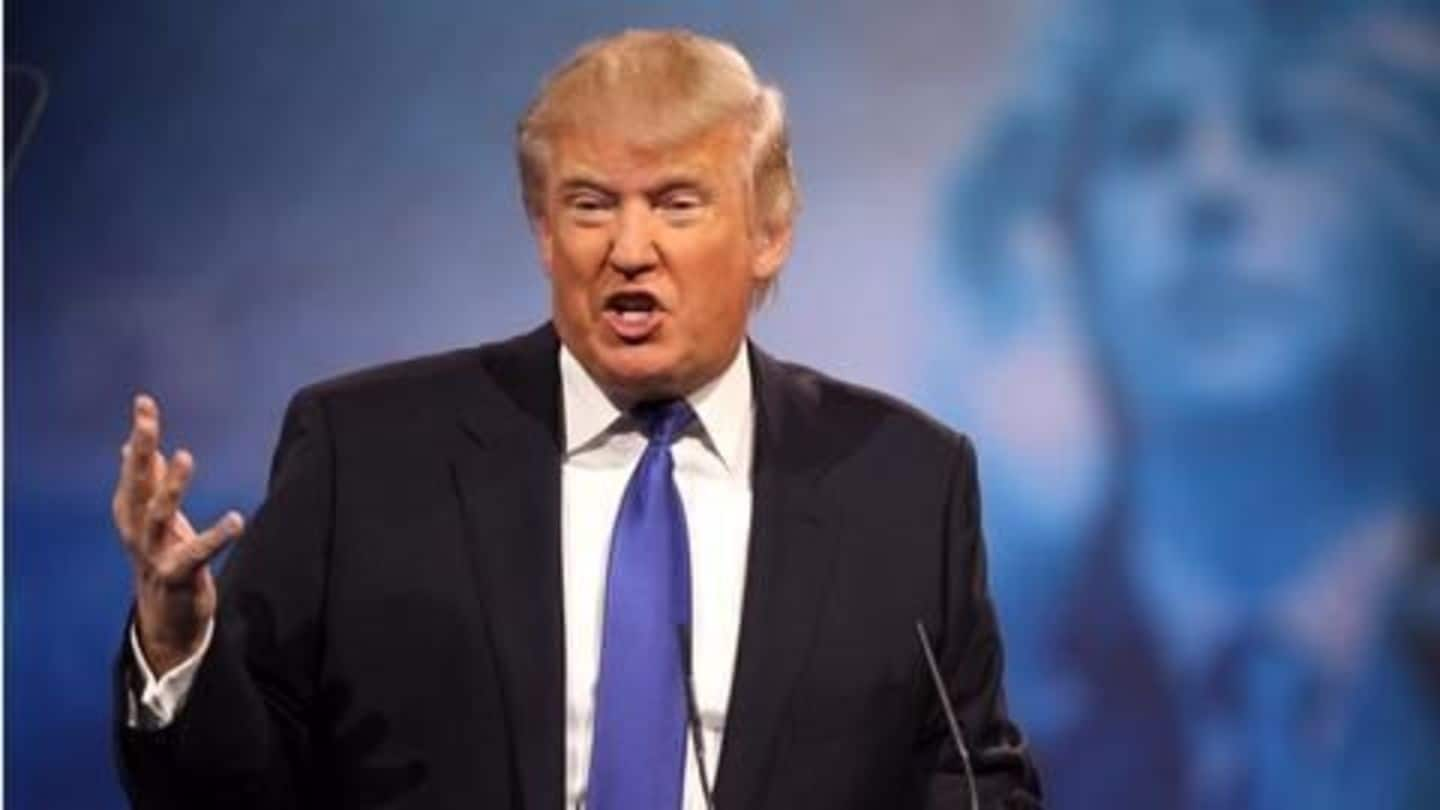
Can Donald Trump be impeached?
What's the story
President Donald Trump had reportedly directly asked former FBI director James Comey to halt an investigation into his former national security adviser, Michael Flynn.
If the reports are true, Trump's actions could potentially amount obstruction of justice, which the US constitution represent grounds for impeachment.
In this timeline, we explain how and under what grounds a president can be impeached.
17 May 2017
Sources- Trump asked ex-FBI chief Comey to halt Flynn investigation
President Donald Trump had reportedly asked former FBI Director James Comey, who he recently fired, to end an investigation into alleged links between former national security adviser Michael Flynn and Russia.
Trump reportedly told Comey: "I hope you can let this go," after a White House meeting in February, according to a memo written by Comey.
The White House has rejected the reports.
Obstruction of justice?
Trump's instruction could amount to obstruction of justice
Comey's memo, if taken at face value, appears to provide the clearest indication that so far Trump has attempted to pressurize the FBI and the Justice Department over the investigation into Russia.
"If (Comey's) telling the truth, I don't know how anyone can see this comment as anything but obstruction of justice," said CNN senior legal analyst Jeffrey Toobin.
Information
What is impeachment?
Under the Constitution, impeachment is the process by which "the president, vice president and all civil officers of the United States" can be charged with "high crimes and misdemeanors," and removed from office if convicted of those charges.
Impeachment call
Democratic lawmaker to call for Trump's impeachment in Congress
The recent developments have led to growing talk of Trump's possible impeachment.
David Gergen, a former presidential adviser to Bill Clinton and Richard Nixon (both of whom faced impeachment) said Trump is entering "impeachment territory."
Democratic Congressman Al Green tweeted that he will call for Trump's impeachment on the floor of Congress at 9 am CST on May 17.
How
How does the impeachment process work?
The House of Representatives can impeach the president through a simple majority only after an article (charges) of impeachment is approved.
A trial is held in the Senate which is presided over by the chief justice of the Supreme Court.
A two-third vote is finally needed in the Senate to actually convict the president on any charge.
The vice-president then assumes power.
What
What are the grounds of impeachment?
The US constitution defines grounds for impeachment as "treason, bribery, or other high crimes and misdemeanors," of which, the latter are vaguely defined and subject to debate.
While trying to impeach a Supreme Court judge in 1970, House member Gerald Ford said "an impeachable offense is whatever a majority of the House of Representatives considers it to be at a given moment in history."
Who
Which US presidents were impeached?
In 1868, President Andrew Johnson was impeached in the House for allegedly breaking the law by removing the US secretary of war. He was acquitted by the Senate.
In 1998, President Bill Clinton was also impeached in the House for obstruction of justice and with perjury in relation to his affair with Monica Lewinsky. He too was acquitted by the Senate.
Personal
The curious case of Richard Nixon
In 1974, President Richard Nixon faced impeachment over his role in the 1972 Watergate scandal. He faced charges of obstruction of justice, abuse of power or defiance of subpoenas. Nixon, who faced near certain impeachment, resigned before the impeachment vote was completed.
What about Trump?
Trump's impeachment: Not so easy
It's important to note that presidents Johnson, Nixon and Clinton, who faced impeachment, were against a Congress controlled by political enemies or opposition parties.
In Trump's case, the Republicans control Congress who remains popular among voters.
There's a good chance that Congressional Republicans would give him the benefit of the doubt for the scandal for which he can argue plausible deniability.